Raul Malo knows how to make an entrance. On a bright June morning in Nashville’s 12 South neighborhood, the Mavericks frontman comes cruising up the driveway of a hilltop coffeeshop on a Vespa scooter. He’s smiling broadly, with a green shirt unbuttoned to his chest to reveal a large medallion that’s as eye-catching as his arrival.
Malo didn’t know it when he parked the Vespa and sat down for coffee and muesli with Rolling Stone, but he was just days away from receiving news that would change his life. On June 27, the singer, songwriter, and leader of one of music’s most impossible-to-pigeonhole bands, announced that he had been diagnosed with colon cancer.
The discovery came after Malo, 58, went for a routine physical, followed by an appointment with a gastroenterologist, who ordered a colonoscopy. Malo says he felt some solace in the diagnosis that resulted.
“When the doctor tells you that you have cancer, there’s a certain relief there, because now you know what you have. And now you know what you gotta do,” Malo says in a follow-up call a few weeks after our breakfast. “It’s the fear of the unknown that always cripples us.”
Malo began chemotherapy in early July and experienced another revelation when he walked into the Sarah Cannon Cancer Center in Nashville for his first treatment. “I learned that you’re not going through this alone,” he says. “There are so many people doing this fight, and it’s all walks of life. And that’s kind of comforting.”
Despite Malo’s health issue, it’s been mostly business as usual for the Mavericks, who so far have only canceled two concerts in July and rescheduled a third to work around their singer’s treatment. But the band, formed in Miami in 1989, is nothing if not resilient.
In their 35-year history, the Mavericks have successfully navigated all sorts of obstacles, from personal matters to industry politics, including a country music landscape that never knew what to do with their blend of Tex-Mex, rock, and country. When they released their 1996 single “All You Ever Do Is Bring Me Down,” featuring Texas Tornados legend Flaco Jiménez, radio asked them to edit out Jiménez’s accordion. (“I was like, are you fucking kidding me?” Malo recalls.) They also weathered an uncertain eight-year breakup and the compromises that came with their 2012 reunion — followed swiftly by the exit of founding member Robert Reynolds two years later.
Last year, drummer Paul Deakin underwent heart surgery that knocked him off the road. During a post-op checkup, an MRI detected something suspicious in his brain and he underwent yet another major surgery to remove a benign growth. Malo’s son Dino filled in during his absence — and remarkably, Deakin was back behind the drum kit within the year.
“We just keep on going, man,” Malo says. “We’re kind of like Superman. Unless it’s Kryptonite, we’re not going down. And I’m glad that’s the spirit, because what else are we going to do?”
The latest proof of their longevity is Moon & Stars, their 13th studio album, released in May. While the sound of the LP reflects the band now — with its boisterous horn section and accordion player — many of the songs were written by Malo during the group’s hiatus. He was writing often then, with collaborators like K.T. Oslin and frequent Mavericks cohort Kostas, but when a flood decimated Nashville and upended the lives of many touring musicians in 2010, he tossed the demo tapes and song sketches into a storage unit.
Malo was content to leave them there. “Honestly, it was a painful time and I didn’t want to deal with it,” he says. But when putting together Moon & Stars, he decided to finally mine the archives. “I went to the storage unit and opened the bin and it was like Raiders of the Lost Ark: hard drives, tapes, notebooks, DAT tapes, whatever we were recording on.”
One of the songs that immediately grabbed Malo was “The Years Will Not Be Kind,” a stark dissertation on aging and mortality that kicks off the album. When he listened to the demo anew, he laughed at the foolishness of a younger man attempting to sing convincingly about the trials of life.
“It just doesn’t sound believable. It was almost 20 years ago. Who’s gonna believe that the years will not be kind? You’ve got a full head of hair. Your goatee is not gray. I realized why it never got recorded,” he says. “But now, I can baritone that shit and it sounds real.”
While Moon & Stars may feature some songs written in the past, they’re delivered with the help of some of Americana music’s most impactful contemporary voices. Sierra Ferrell appears on the title track, a folky duet with a mambo rhythm; Maggie Rose offers her songbird croon on the majestic “Look Around You”; and Nicole Atkins adds extra sass to the album’s lusty romp of a single, “Live Close By (Visit Often).” Malo wrote that song with Nineties country star Oslin more than two decades ago and she recorded a version as the title track of her 2001 album, Live Close By, Visit Often.
“It’s a really great, fun catchy song, and it stayed on my mind for years,” Malo says. “And live, people love it.”
The Mavericks’ lead guitarist, Eddie Perez, has often described the group as a “dance band,” and to see the Mavericks perform is to witness a jubilant stage show. Deakin’s drumming is stirring, Perez plays with an elegant charisma, and Jerry Dale McFadden punctuates his keys playing with joyous dances across the stage. Malo’s voice, often singing lyrics in English and Spanish, ties it all together.
And he has no intention of being silenced by his current health situation. Malo views his cancer diagnosis not as a heavy burden, but as a tool to help encourage the Mavericks’ fans to be proactive about their own well-being.
“The only way I was going to feel good about making such a private thing public is if we turned it into a message,” Malo, who plans on touring with the band all year, says. “There’s a fear and the stigma that comes with this, but I want to try and do my best to show people that there’s really nothing to be afraid of.”
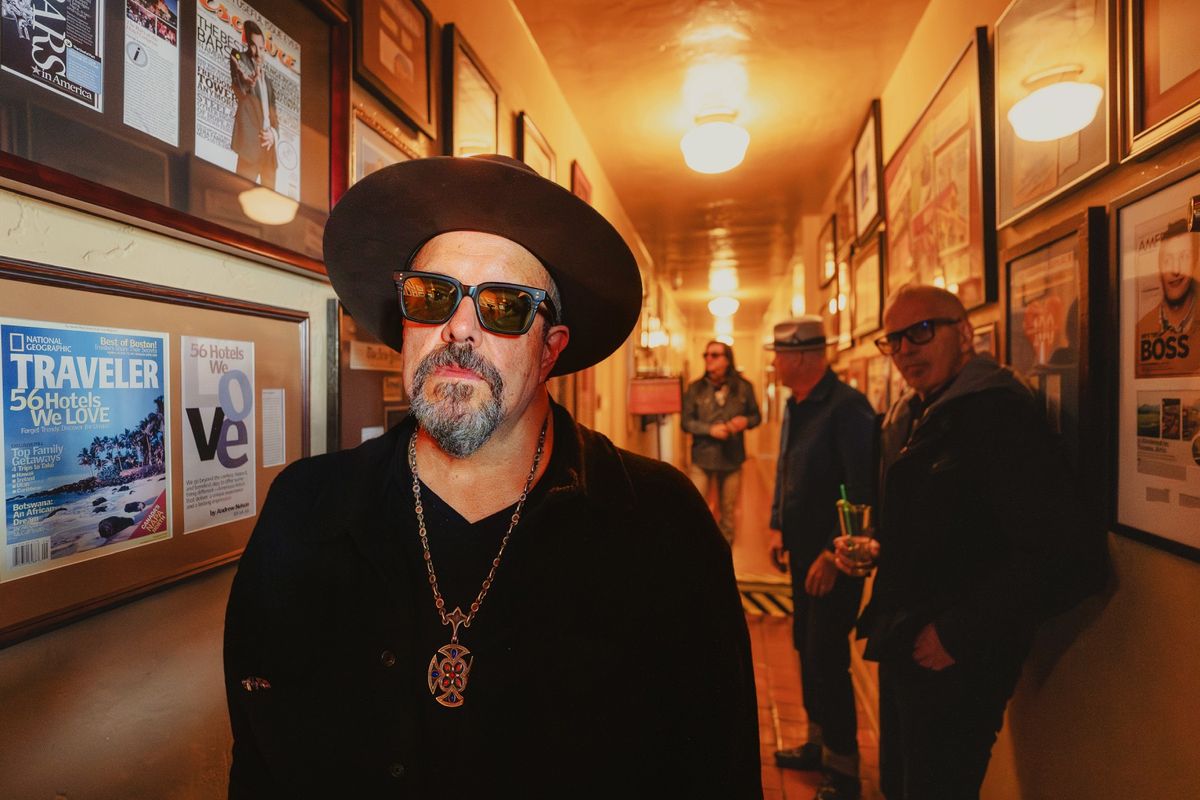





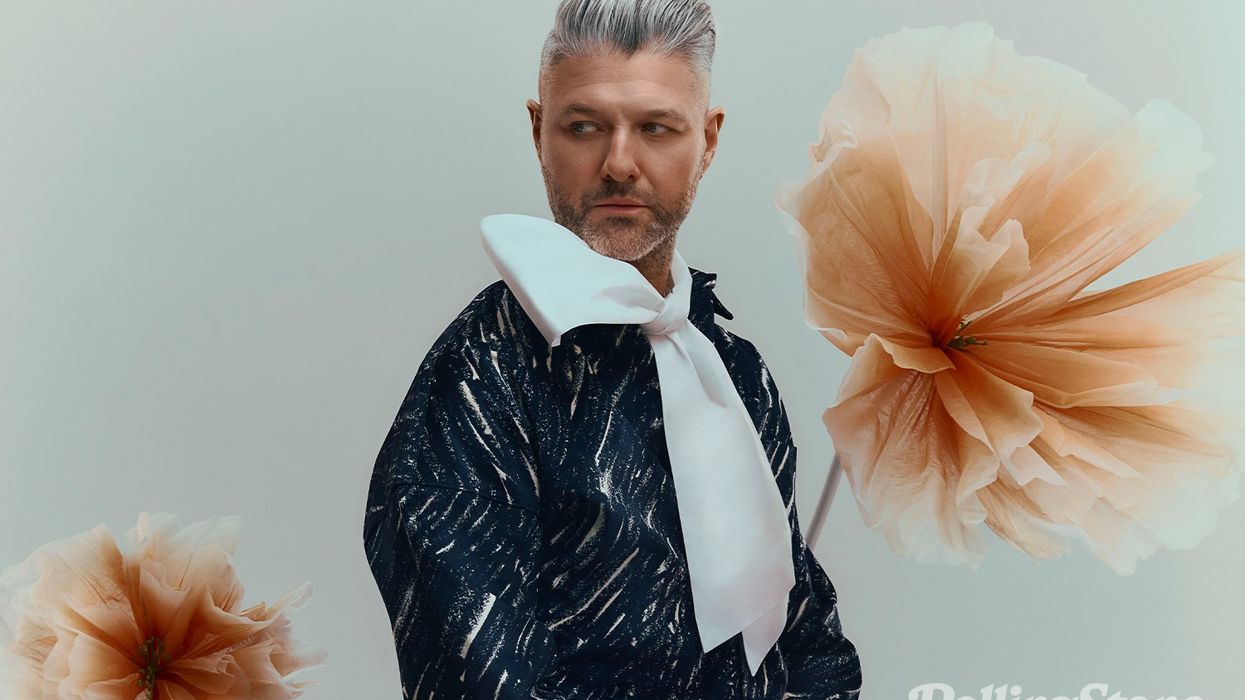
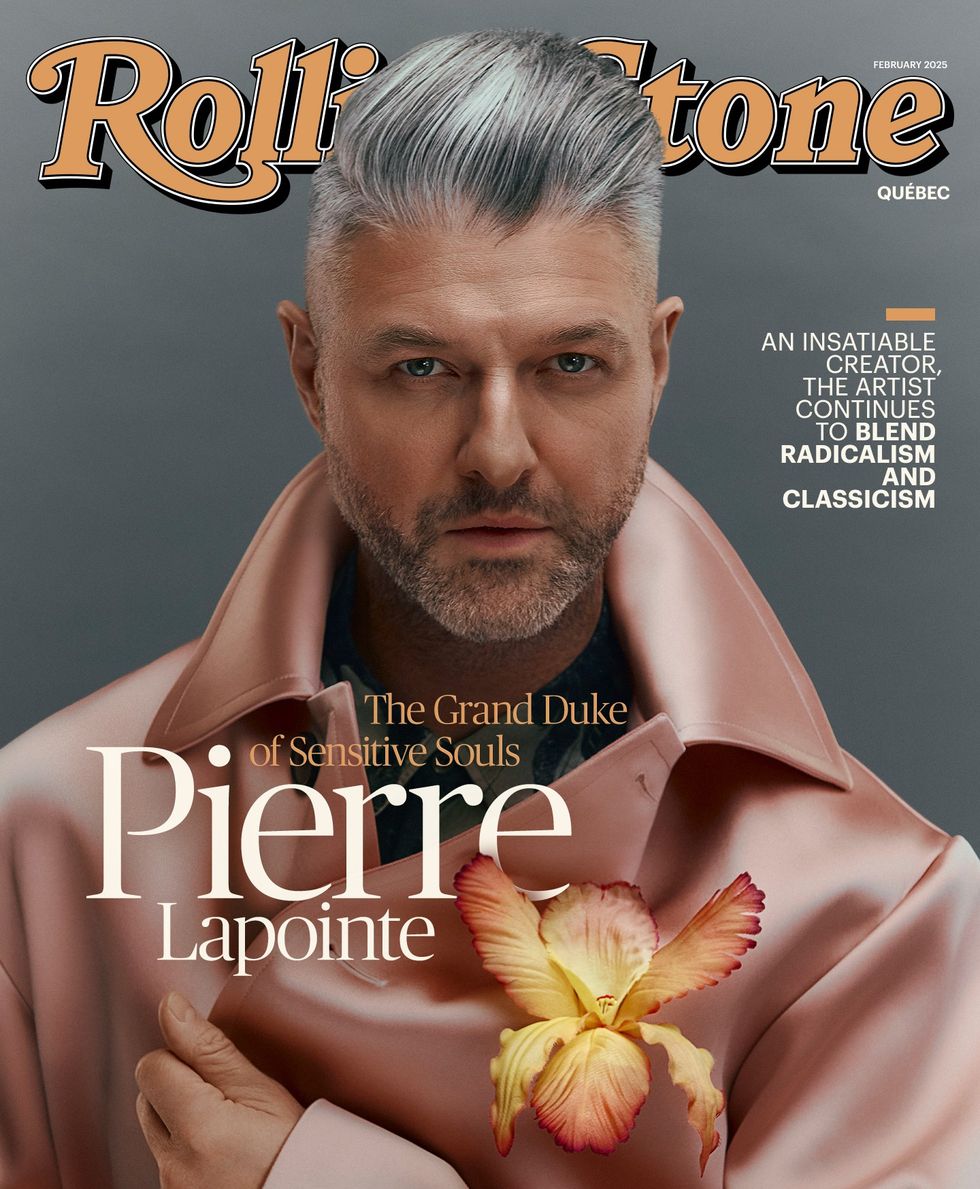 Coat (polyester and wool), shirt (silk), Dries Van Noten, SSENSE.com / Flower (silk), M&S Schmalberg
Coat (polyester and wool), shirt (silk), Dries Van Noten, SSENSE.com / Flower (silk), M&S Schmalberg
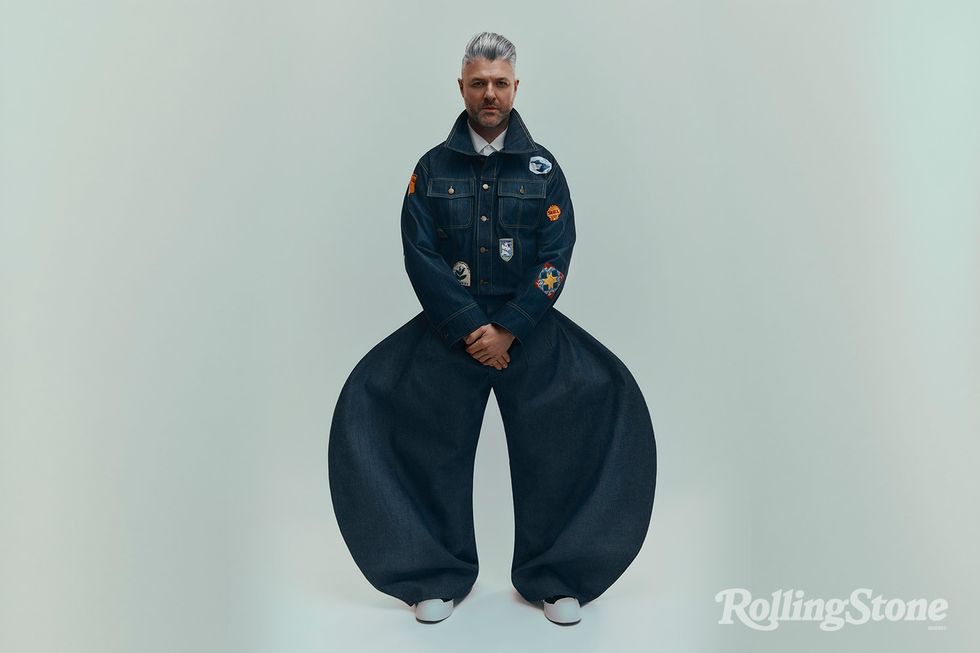 Blouson (denim and hand embroidered patches), WJ Crosson / Shit (polyester), Homme plissé Issey Miyake, Holt Renfrew/Pants from personal collection/ Shoes(canvas), Marni
Blouson (denim and hand embroidered patches), WJ Crosson / Shit (polyester), Homme plissé Issey Miyake, Holt Renfrew/Pants from personal collection/ Shoes(canvas), Marni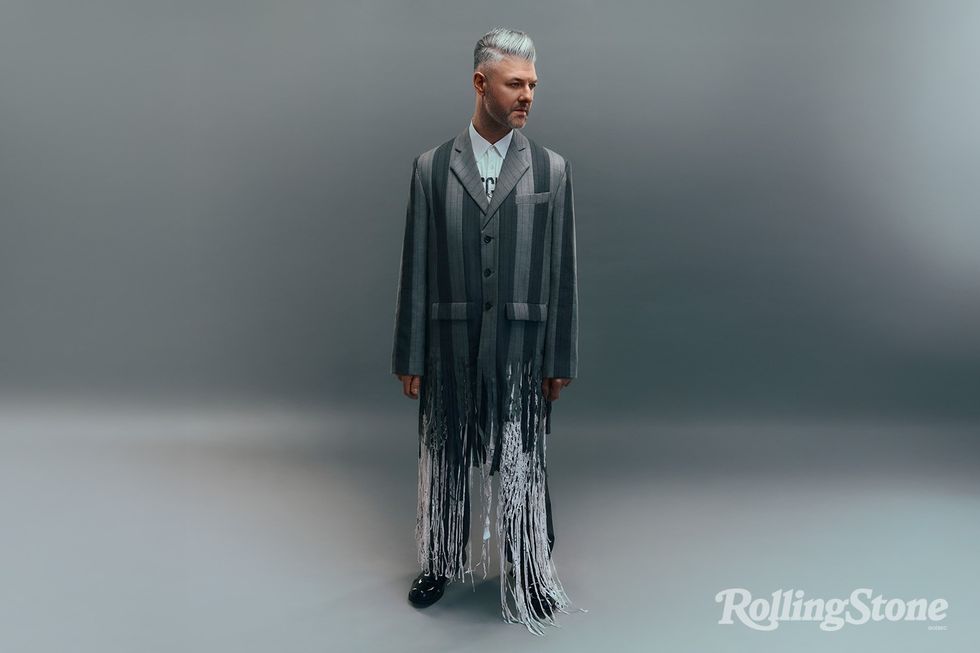 Jacket and pants (virgin wool), shirt (acrylic coated cotton), Moschino / Shoes from Pierre Lapointe's personal collection
Jacket and pants (virgin wool), shirt (acrylic coated cotton), Moschino / Shoes from Pierre Lapointe's personal collection
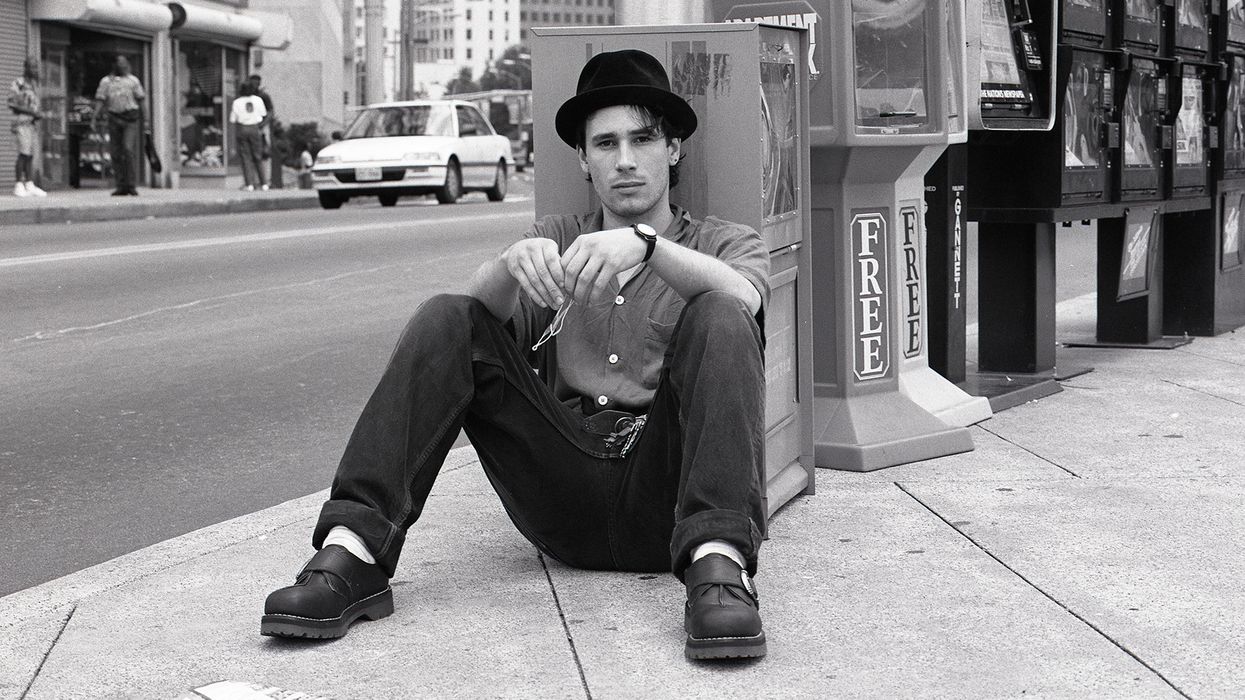

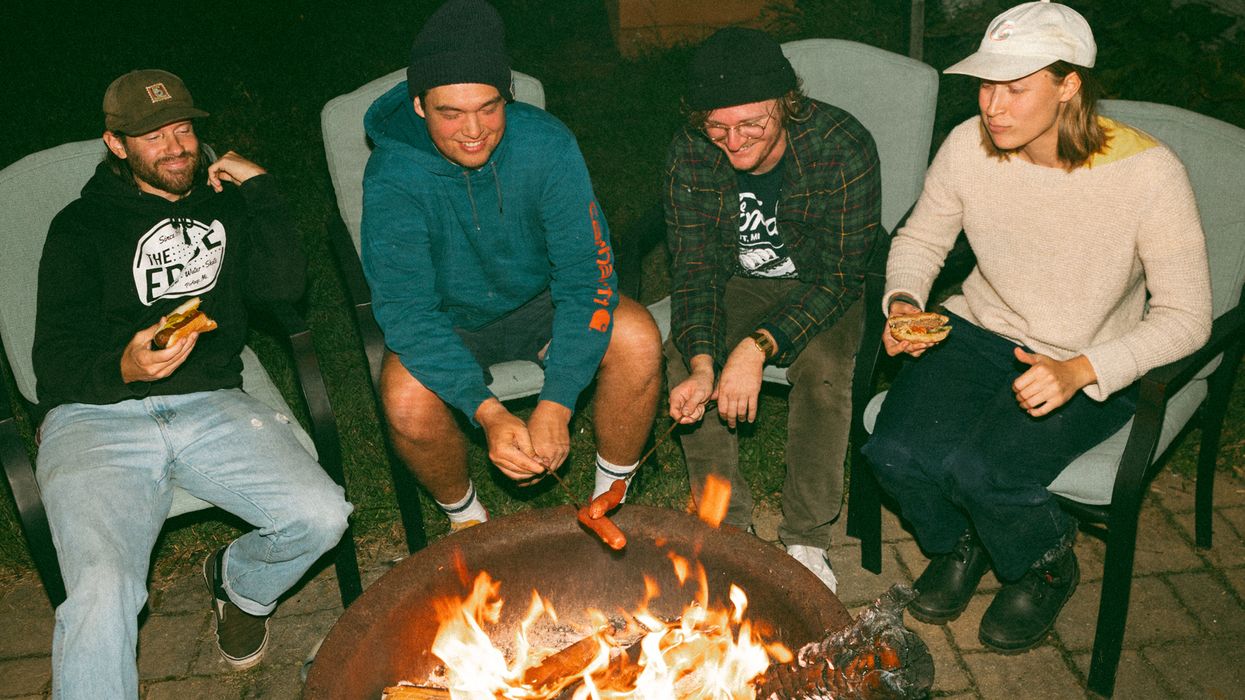
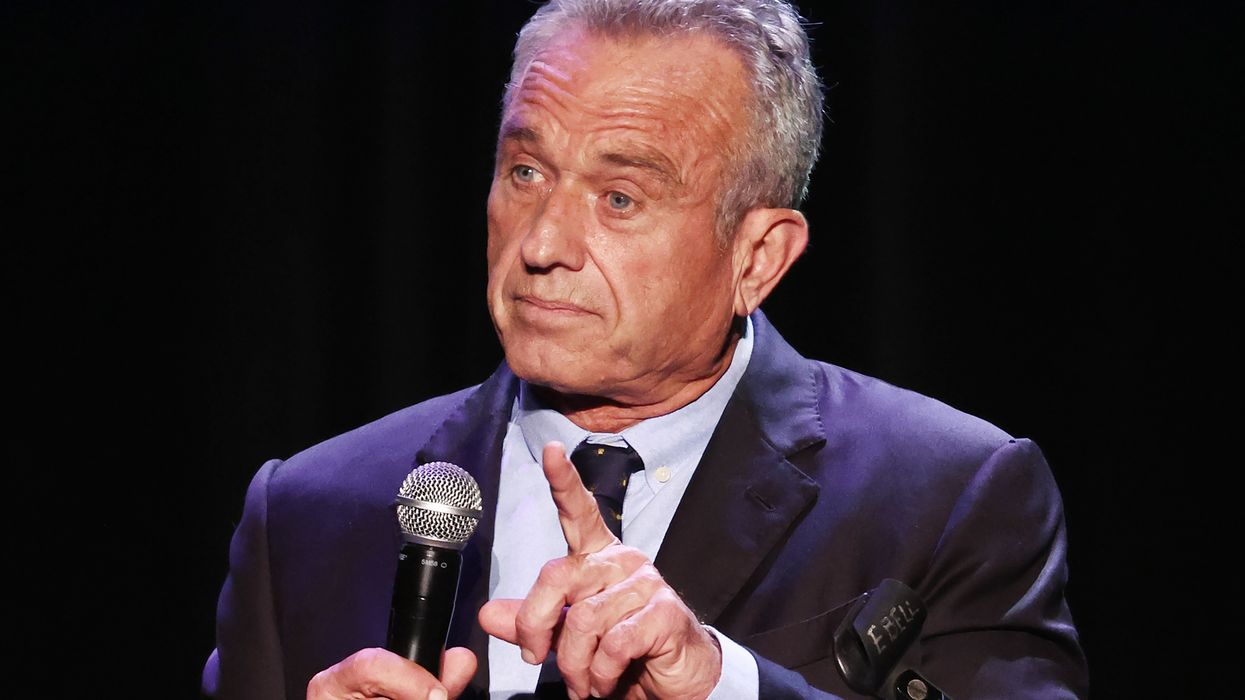
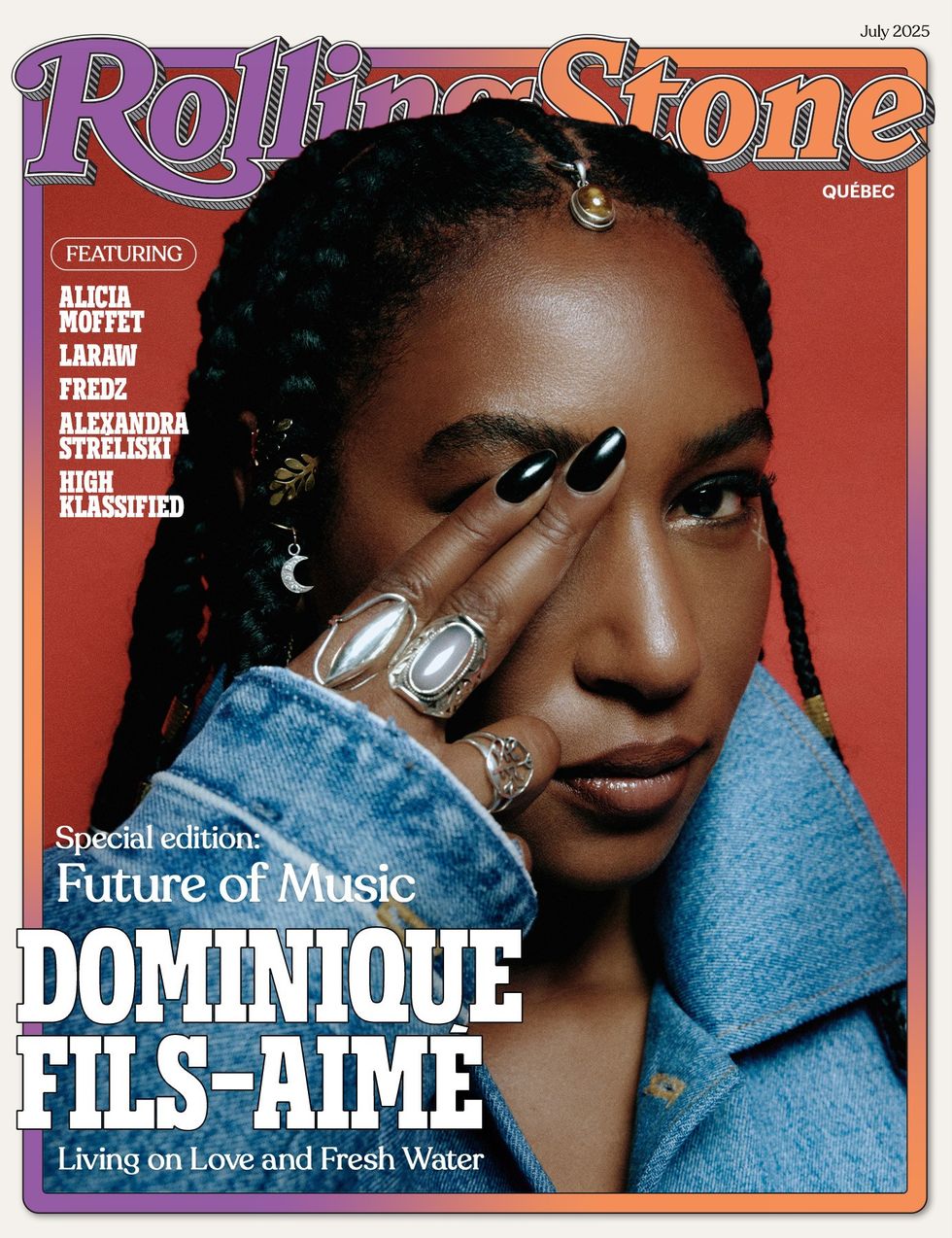 Jean Jacket: Repull/Jewelry: Personal collection
Jean Jacket: Repull/Jewelry: Personal collection Hat: Xtinel/Dress shirt and vest: Raphael Viens/Jewelry: Personal Collection & So Stylé
Hat: Xtinel/Dress shirt and vest: Raphael Viens/Jewelry: Personal Collection & So Stylé 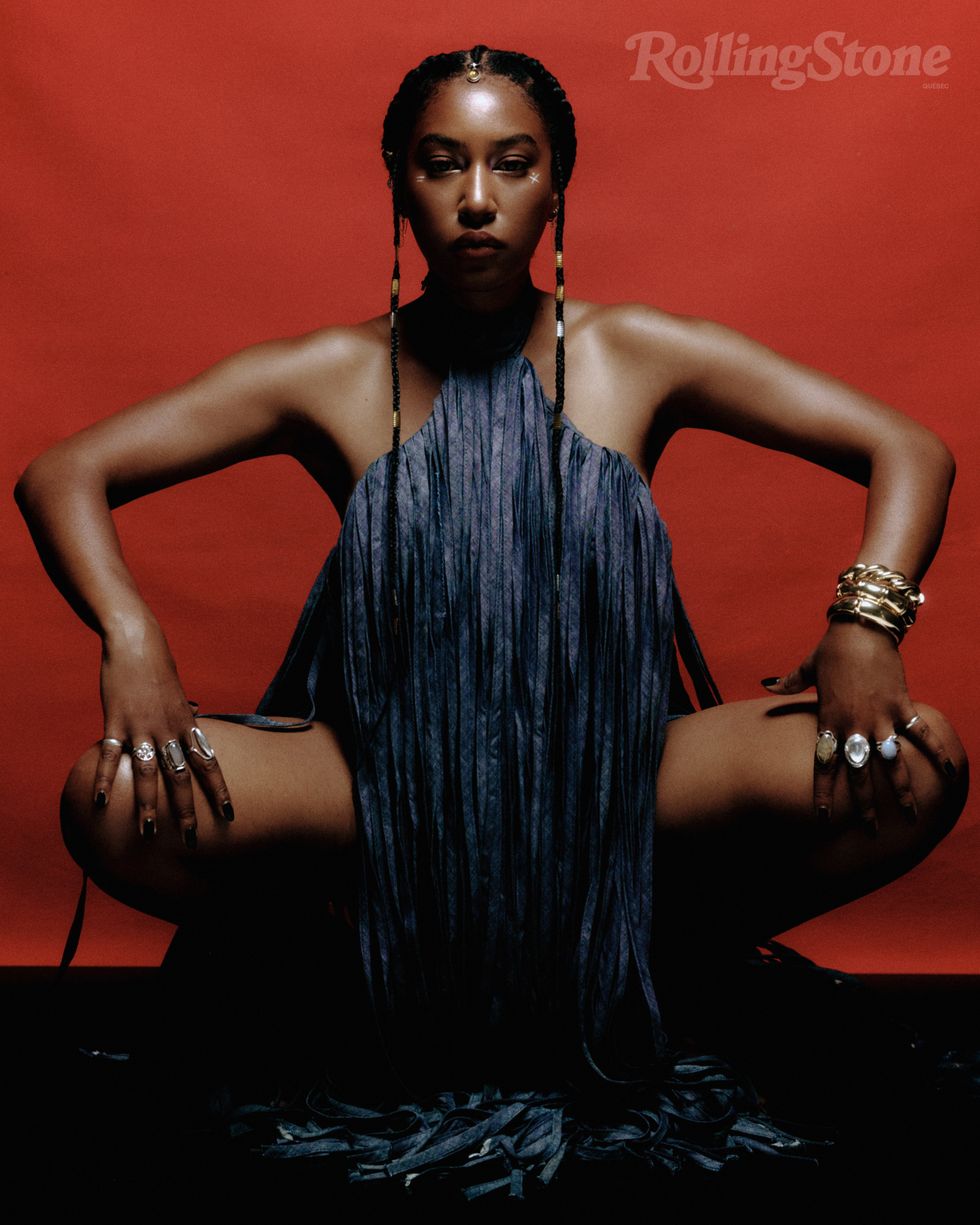 Dress: Helmer/Jewelry: Personal Collection
Dress: Helmer/Jewelry: Personal Collection 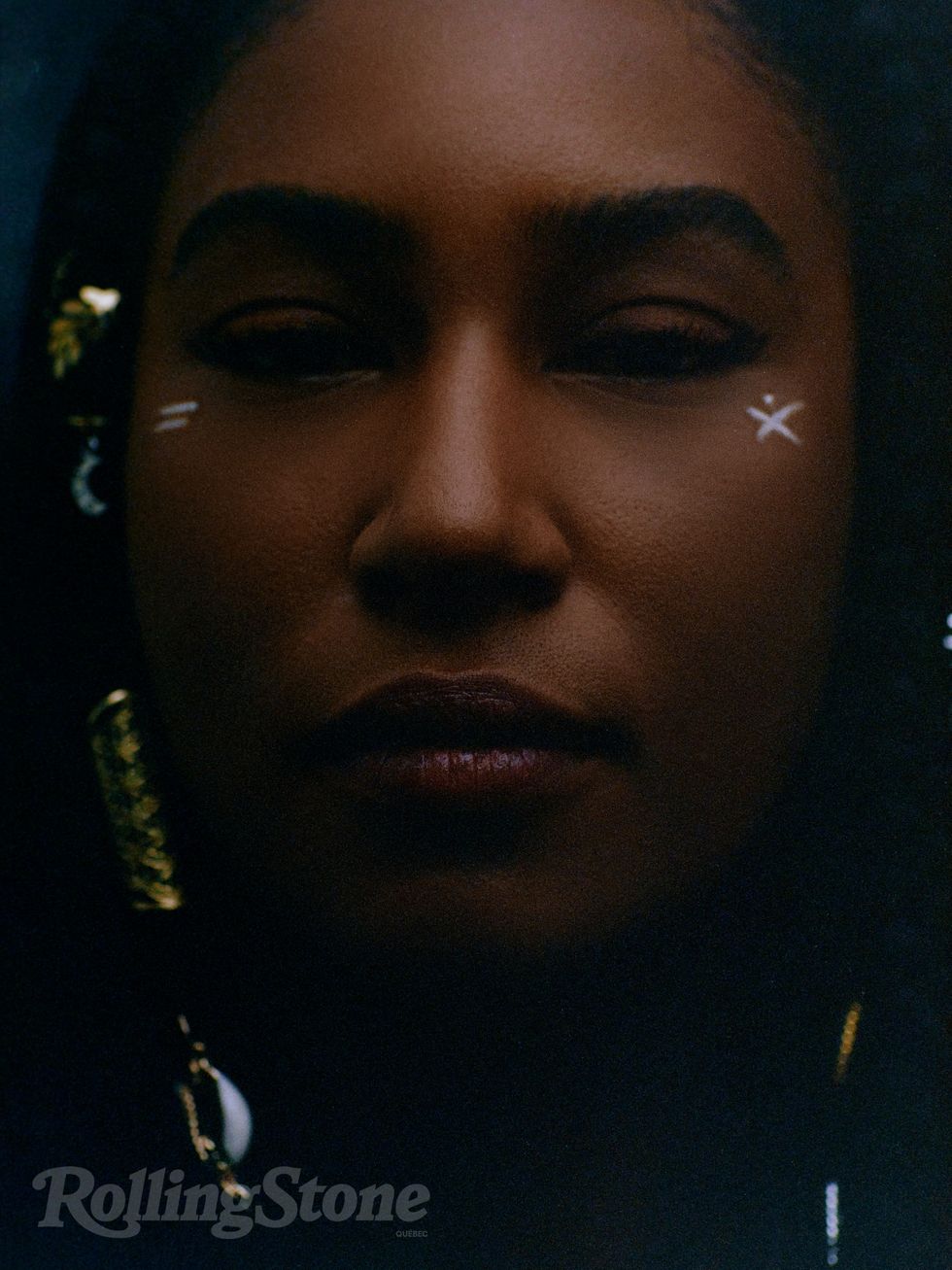 Jewelry: Personal Collection
Jewelry: Personal Collection 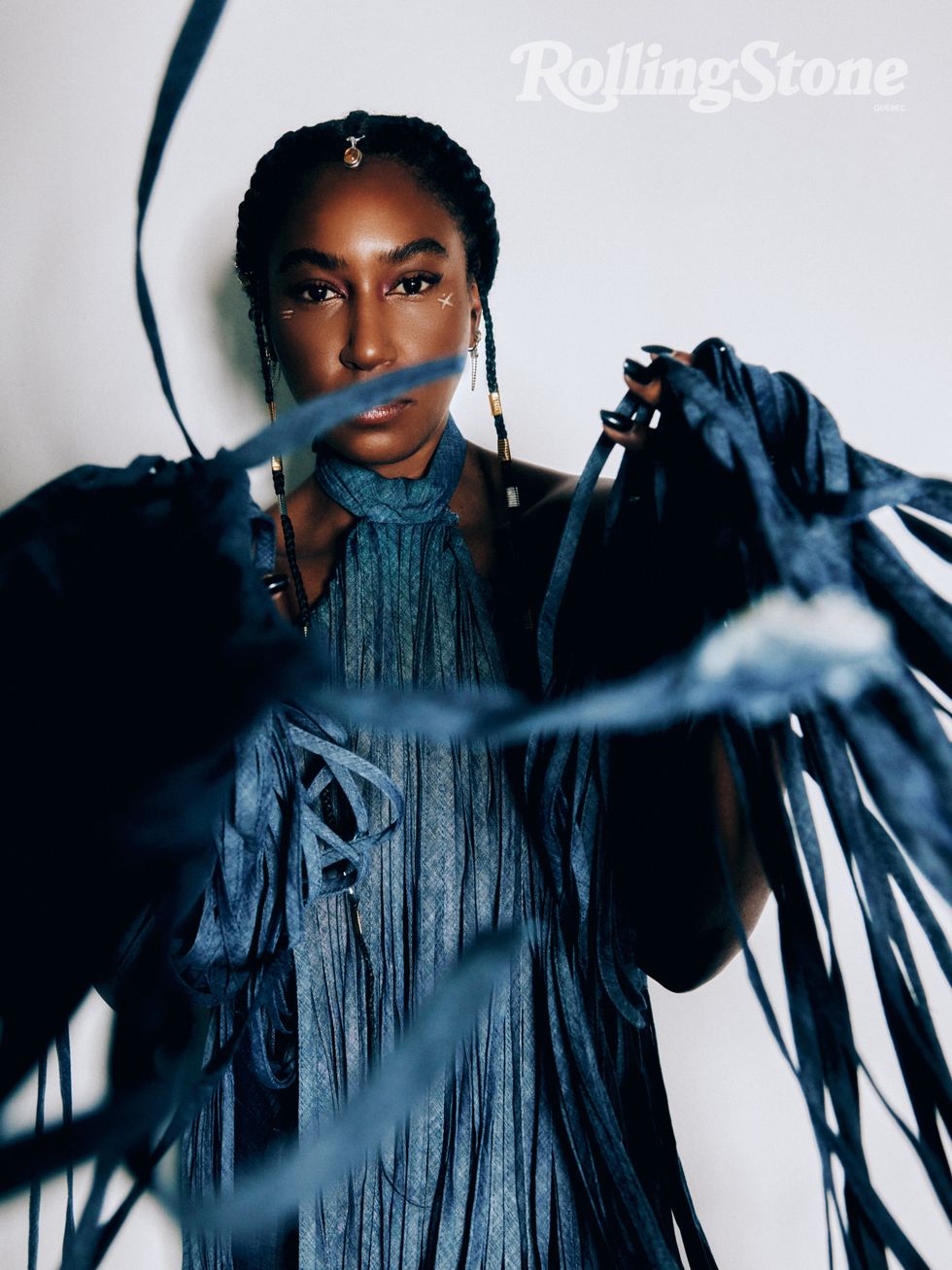 Dress: Helmer/Jewelry: Personal Collection
Dress: Helmer/Jewelry: Personal Collection 
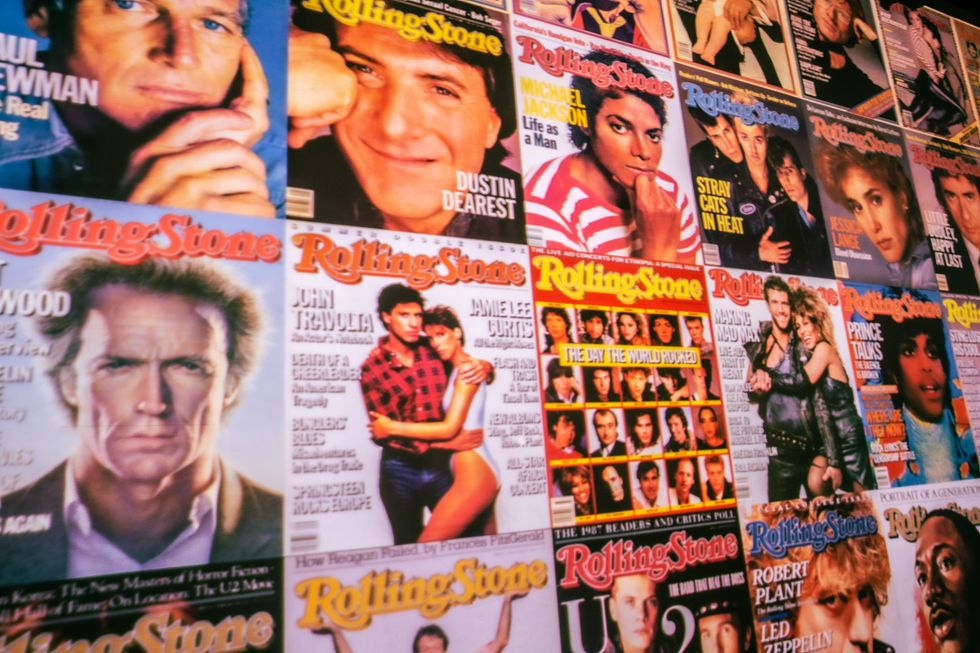
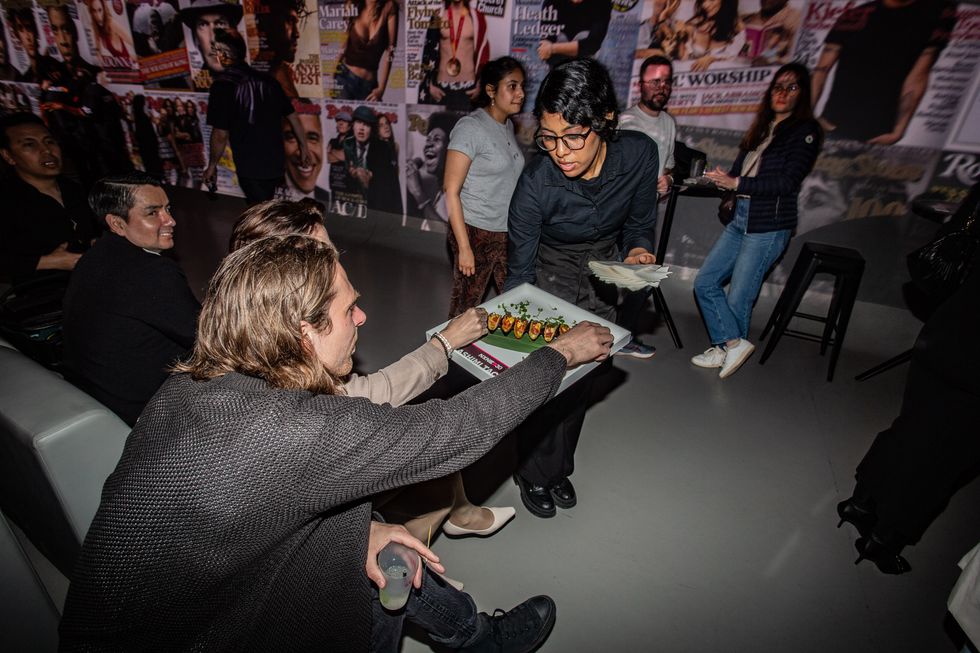 Catering Presented By The Food DudesPhoto by Snapdrg0n
Catering Presented By The Food DudesPhoto by Snapdrg0n Catering Presented By The Food DudesPhoto by Snapdrg0n
Catering Presented By The Food DudesPhoto by Snapdrg0n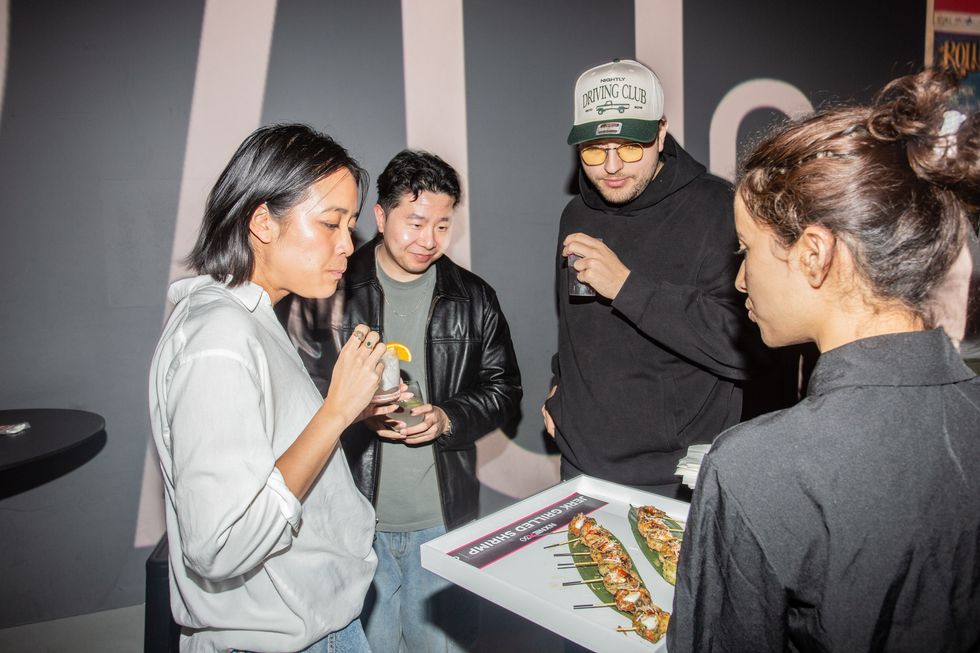 Catering Presented By The Food DudesPhoto by Snapdrg0n
Catering Presented By The Food DudesPhoto by Snapdrg0n
 Photographer: Raphaëlle Sohier / Executive production: Elizabeth Crisante & Amanda Dorenberg / Design: Alex Filipas / Post-production: Bryan Egan/ Headpiece: Tristan Réhel
Photographer: Raphaëlle Sohier / Executive production: Elizabeth Crisante & Amanda Dorenberg / Design: Alex Filipas / Post-production: Bryan Egan/ Headpiece: Tristan Réhel Photo: Raphaëlle Sohier
Photo: Raphaëlle Sohier Photo: Raphaëlle Sohier/ Photo production: Bryan Egan/ Blazer:
Photo: Raphaëlle Sohier/ Photo production: Bryan Egan/ Blazer:  Photo: Raphaëlle Sohier/ Blazer: Vivienne Westwood/ Skirt :
Photo: Raphaëlle Sohier/ Blazer: Vivienne Westwood/ Skirt : 
